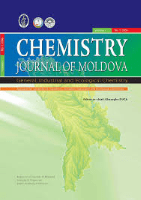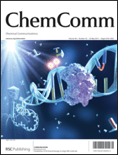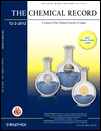
JOURNAL OF THE CHEMICAL SOCIETY OF PAKISTAN
Scope & Guideline
Catalyzing Discoveries in the World of Chemistry.
Introduction
Aims and Scopes
- Chemical Synthesis and Characterization:
Research related to the synthesis of novel chemical compounds, including organic, inorganic, and coordination complexes, with a focus on their structural and functional characterization. - Analytical Chemistry:
Development and optimization of analytical techniques for the detection and quantitation of various substances, including environmental pollutants, pharmaceuticals, and natural products. - Materials Science:
Exploration of new materials, particularly nanomaterials and composites, with applications in catalysis, energy storage, and environmental remediation. - Biochemistry and Pharmacology:
Studies investigating the biological activities of chemical compounds, including their potential therapeutic effects, toxicity, and mechanisms of action. - Environmental Chemistry:
Research addressing chemical processes in the environment, including pollution, degradation pathways, and the development of sustainable practices. - Theoretical and Computational Chemistry:
Utilization of computational methods to study chemical systems, predict properties, and model interactions at the molecular level. - Green Chemistry:
Focus on sustainable practices in chemical processes, including the development of eco-friendly synthesis methods and materials.
Trending and Emerging
- Nanotechnology and Nanomaterials:
There is a significant increase in research related to the synthesis and application of nanomaterials, particularly in catalysis, drug delivery, and environmental remediation. - Sustainable and Green Chemistry Practices:
An increasing number of studies are focused on green chemistry principles, including the development of eco-friendly synthesis methods and the use of renewable resources. - Biological Applications of Chemistry:
Research exploring the intersection of chemistry and biology is on the rise, particularly studies on drug development, biocatalysis, and the therapeutic potential of natural products. - Computational Chemistry and Modeling:
There is a growing trend towards the use of computational methods to predict chemical behavior and interactions, which is becoming an essential tool in modern chemical research. - Interdisciplinary Research:
Emerging themes reflect a trend towards interdisciplinary approaches that combine chemistry with fields such as materials science, biology, and environmental science, addressing complex problems through collaborative efforts.
Declining or Waning
- Traditional Organic Synthesis Methods:
There has been a noticeable decrease in publications focusing on classical organic synthesis techniques, likely due to the rise of more sustainable and efficient methods. - Conventional Analytical Techniques:
The reliance on traditional analytical methods appears to be waning as researchers increasingly adopt advanced techniques such as chromatographic and spectrometric approaches that offer greater sensitivity and specificity. - Studies on Inorganic Compounds:
Research specifically focused on inorganic compounds, particularly those with limited applications, has declined in favor of studies on hybrid or composite materials that demonstrate broader utility. - Single-Focus Environmental Studies:
The focus on isolated environmental studies without interdisciplinary approaches is decreasing, as there is a growing trend towards integrated research that combines chemistry with environmental science.
Similar Journals

EGYPTIAN JOURNAL OF CHEMISTRY
Shaping the Future of Chemistry through Rigorous ResearchThe Egyptian Journal of Chemistry, published by the National Information & Documentation Centre (NIDOC), serves as a vital platform for disseminating novel research and advancements in the field of chemistry and its interdisciplinary applications. Established in 2004 and continuing its publication through 2024, this journal encapsulates a diverse range of topics including Biochemistry, Chemical Engineering, and Materials Science, reflected in its respectable Scopus rankings. With an array of Quartile rankings indicating its varying impact across different categories, scholars can benefit from its insights into innovative solutions and methodologies that address pressing scientific challenges. Although it currently does not operate under an open access model, researchers and students are encouraged to leverage its findings as it plays a pivotal role in the academic landscape of Egypt and beyond. For those engaged in chemical research, the Egyptian Journal of Chemistry stands as an essential resource, contributing significantly to the global body of scientific knowledge.

Chemistry Journal of Moldova
Innovative Insights: Shaping the Future of Environmental ChemistryChemistry Journal of Moldova is a pioneering open-access journal dedicated to fostering the dissemination of significant research in the diverse fields of chemistry, including Environmental Chemistry, Process Chemistry and Technology, and more. Published by the esteemed Academia Sciences Moldova, Institute of Chemistry, this journal has been at the forefront of scientific inquiry since its establishment in 2006. With an ISSN of 1857-1727 and a digital presence through its E-ISSN of 2345-1688, it provides an accessible platform for researchers, students, and professionals to share and engage with cutting-edge findings. Although currently ranked in the Q4 quartile in several chemistry categories, the journal is committed to improving its impact within the academic community and aims to highlight emerging trends and technologies in the chemistry domain. The journal's office is located at 3 Academiei Str, Chisinau MD-2028, Moldova. As it converges its publication years from 2016 to 2024, the Chemistry Journal of Moldova invites all contributors and readers to explore its rich repository of research that bridges innovative ideas to practical applications.

CHEMICAL JOURNAL OF CHINESE UNIVERSITIES-CHINESE
Elevating Scholarly Dialogue in Chemistry.CHEMICAL JOURNAL OF CHINESE UNIVERSITIES-CHINESE, published by Higher Education Press, serves as a vital platform for advancing research in the field of chemistry. With a history dating back to 1996, this journal has evolved to encompass a wide range of topics fundamental to the chemistry community, catering to both applied and theoretical perspectives. Although classified in Quartile 4 within the broader chemistry category, it remains a significant contributor to the knowledge base, ranking 281st out of 408 journals in the general chemistry category according to Scopus. Positioned in Beijing, China, the journal aims to foster collaboration among researchers and professionals while disseminating innovative research and developments. By promoting open exchange of ideas in chemistry, it strives to elevate the scholarly dialogue and contribute to ongoing education for students and professionals alike, with its content accessible through institutional subscriptions.

Vietnam Journal of Chemistry
Advancing Chemistry Through Innovative ResearchVietnam Journal of Chemistry, published by WILEY, is a prominent academic journal that serves as a platform for the dissemination of innovative research in the field of chemistry. With its ISSN 0866-7144 and E-ISSN 2572-8288, this journal has made a significant impact on the global scientific community, evidenced by its 2023 Scopus ranking as #274 in the General Chemistry category and a commendable percentile of 32nd. The journal, categorized in the Q3 quartile for miscellaneous chemistry subjects, aims to foster communication among chemists from Vietnam and around the world, encouraging collaboration and the exchange of cutting-edge knowledge. While it currently does not offer Open Access options, the Vietnam Journal of Chemistry is committed to contributing valuable insights from its coverage years spanning from 2018 to 2024, making it a worthy resource for researchers, professionals, and students dedicated to advancing the field of chemistry. Based in the United Kingdom, it stands as a testament to the vibrant research endeavors emerging from Vietnam and beyond.

JOURNAL OF THE INDIAN CHEMICAL SOCIETY
Illuminating India's Contributions to Global Chemical ResearchJournal of the Indian Chemical Society, published by Elsevier, stands as a cornerstone in the field of chemistry, particularly representing the rich chemical research emanating from India.
With a significant history dating back to its establishment, this journal encompasses diverse disciplines including Drug Discovery, Electrochemistry, Inorganic Chemistry, Organic Chemistry, and Physical and Theoretical Chemistry, reflecting the evolving landscape of chemical sciences.
Despite being positioned in the Q3 category across multiple quarters, the journal demonstrates promising rankings in various chemistries, highlighting its commitment to advancing the knowledge and application of chemical sciences. While currently not available as an open access journal, the Journal of the Indian Chemical Society is dedicated to providing a platform for high-quality research that fosters innovation and collaboration among researchers, professionals, and students worldwide.
With its continuous publication from 1973 to the present, it serves as an essential repository for cutting-edge findings and developments in chemistry, striving to connect academia with industry and practice.

Canadian Journal of Chemistry
Diving Deep into the World of ChemistryWelcome to the Canadian Journal of Chemistry, a prominent publication dedicated to advancing the study of chemistry through original research and critical reviews. Published by Canadian Science Publishing, this journal has been a cornerstone of chemical research since its inception, covering a broad spectrum of topics within the field, including catalysis, organic chemistry, and general chemistry. With an ISSN of 0008-4042 and E-ISSN of 1480-3291, it provides a vital platform for researchers, professionals, and students to disseminate their findings and engage in scholarly discourse. Impact Factor is currently in development, with the journal classified in the Q4 category for catalysis and Q3 for miscellaneous chemistry fields, signifying its evolving contributions to the scientific community. The journal operates without an open access model, which ensures a rigorous peer-review process while maintaining subscription access for institutions and libraries. Located in Ottawa, Canada, the Canadian Journal of Chemistry continues to provide an invaluable resource for those dedicated to the scientific pursuit of chemistry, making significant strides in fostering interdisciplinary approaches and innovative research methodologies.

JOURNAL OF THE CHILEAN CHEMICAL SOCIETY
Unveiling the Future of Chemistry, One Article at a Time.The Journal of the Chilean Chemical Society, published by the Sociedad Chilena de Química, serves as a premier platform for disseminating significant research findings in the field of Chemistry. With an ISSN of 0717-9707, this journal has established its presence since 2003, providing open access to a diverse range of studies and advancements in this vital scientific domain. It currently holds a Q3 category ranking in Chemistry (miscellaneous) and ranks 196 out of 408 in the general chemistry category on Scopus, indicating its valuable contributions to the field. Through the journal, researchers, professionals, and students are encouraged to engage with cutting-edge research and foster collaboration among the scientific community in Chile and beyond. The society's commitment to excellence ensures that articles published reflect high-quality research, underpinning the journal’s role in shaping knowledge and innovation in chemistry.

CHEMICAL COMMUNICATIONS
Catalyzing communication in the chemical sciences.Chemical Communications, published by the esteemed Royal Society of Chemistry, is a prominent journal within the field of chemical science, focusing on the dissemination of cutting-edge research in a variety of sub-disciplines including catalysis, materials chemistry, and electronic materials. Operating without an open access model, this journal provides critical insights from contributors around the globe, enhancing our understanding of complex chemical interactions and innovative applications. Ranked in the top quartile for several categories such as Ceramics and Composites, and Metals and Alloys, Chemical Communications boasts impressive Scopus rankings, securing strong positions across multiple fields and showcasing its influence within the scientific community. The journal is committed to advancing knowledge and fostering collaboration among researchers, professionals, and students, making it an invaluable resource for those looking to stay abreast of the latest advancements in chemistry and materials science. With a publication history dating back to 1965 and continuing into 2024, its rich archive serves as a vital repository of chemical research and development.

CHEMICAL RECORD
Pioneering Discoveries in Chemistry and BiochemistryThe Chemical Record is a prestigious peer-reviewed journal published by WILEY-V C H VERLAG GMBH, focusing on innovative research and developments across the diverse and evolving fields of chemistry and biochemistry. With an esteemed 2023 Impact Factor and recognized as a Q1 journal in several categories—including Biochemistry, Chemical Engineering, and Materials Chemistry—The Chemical Record stands as a critical resource for researchers, professionals, and students aiming to disseminate and acquire knowledge in these disciplines. The journal's engaging scope covers contemporary topics and fosters collaboration within the global scientific community, ensuring accessibility to cutting-edge research. By publishing articles that meet the highest standards of scholarship, it has earned a significant place within the academic ecosystem, as reflected in its strong Scopus rankings. Although The Chemical Record operates without open access, it remains deeply committed to advancing the field of chemistry through rigorous and impactful publications that bridge gaps between theory and practice.

Revista Virtual de Quimica
Advancing Chemistry Through Open Access InnovationRevista Virtual de Quimica, published by the SOC BRASILEIRA QUIMICA, is a dynamic online journal based in Brazil, dedicated to promoting innovative research in the field of chemistry and related disciplines. Established in 2011, the journal has made significant strides in contributing to the academic landscape, receiving an impact factor that highlights its relevance, although it currently holds a Q4 quartile ranking in the miscellaneous category of Chemistry and Mathematics as of 2023. The journal is committed to open access, ensuring that scholarly articles are readily available to researchers, professionals, and students worldwide. Its focus encompasses diverse areas within general chemistry, aiming to foster knowledge sharing and collaboration among the scientific community. By providing a platform for high-quality research publications, Revista Virtual de Quimica stands as an essential resource for advancing chemical sciences and encouraging interdisciplinary studies.